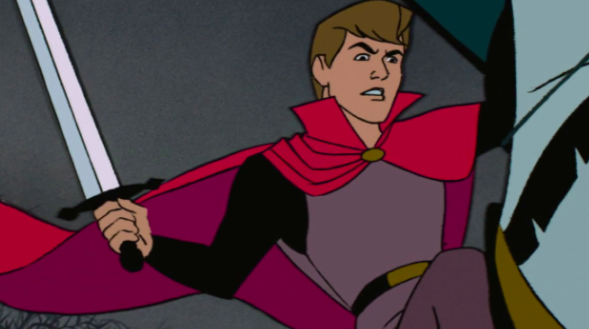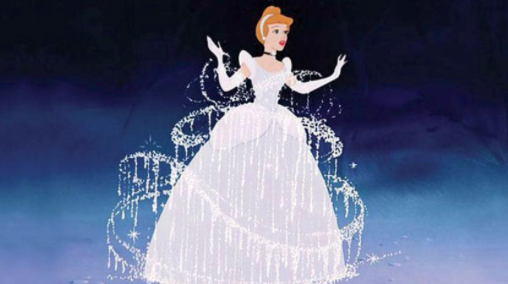Artemii Myasnikov draws Disney princesses in armor. Snow White wielding a broadsword, Belle cocking a pistol, Cinderella in gauntlets. Myasnikov told Buzzfeed that he drew his initial drawing (of Snow White) because she is “the most damsel-in-distress-y princess ever,” and he wanted her, instead, to be “armed, dangerous, and in charge of her own fate.” Myasnikov’s images are arresting — and will appeal to fans of fantasy and steam punk — but they do beg the question: does a woman need to be a warrior in order to be brave?
The idea that the antidote to being a “damsel in distress” is to become a warrior is not unique to Myasnikov. Disney itself made that leap in the late ’90s when the studio’s push for “feminist” princesses led, in part, to the release of Mulan — a warrior “princess.” But insisting that being brave — or, as Myasnikov puts it, being “in charge of [your] own fate” — means becoming a literal warrior, implies that the only way a woman can be “strong” is by taking on the characteristics of men.
This mindset — that a woman is not “strong” or “brave” unless she is physically powerful — has transformed the way we view princess fairy tales, and the movies they inspire. Disney’s Dream Big Princess campaign, for example, seeks to recast the “damsel-in-distress-y” princesses as heroines with physical prowess — as if this was their main achievement all along. Rapunzel swings by her hair. Cinderella dances. Ariel swims. “For every girl who dreams big,” the ad explains, “there’s a princess to show her it’s possible.”
The princesses in the Dream Big ad are strong women. But their strength — their bravery — has nothing to do with their athletic abilities. Rapunzel is brave for fighting back against Mother Gothel’s abuse and going off on her own to follow her dreams. Cinderella is brave for staying kind, optimistic, and true to herself in the face of adversity, and for standing up to her step-family when they said she couldn’t go to the ball. Ariel is brave for forging a path toward the life she was meant to live, even when her family couldn’t understand her. Boiling the achievements of these princesses — and, by association, women in general — down to their physical abilities, completely negates the very real and powerful bravery of women.
For men, superior physical strength is elevated to bravery only when used in service of protecting others weaker than themselves. It isn’t brave to walk up to a random guy on the street and punch him in the face. It is brave to walk up to a random guy on the street who is attempting to rape someone, for example, and punch him in the face. The fact that, in general, men are physically stronger than women is why the measure of their bravery is tied up with feats of physicality. Since men can protect those who can’t protect themselves, men who don’t are cowards, and men who do are brave.

But a woman’s strength doesn’t lie in her physical prowess. In a situation that involves physical danger, a woman is biologically less likely to be able to defend herself than a man is. Similarly, she is less likely to be able to defend a man if another man is threatening him. If she must be measured by the same standard of bravery as a man, she will come up short nearly every time, and we’ll be forced to say that men are braver than women — which isn’t true at all.
While women may be physically weaker than men, they possess a power than men cannot achieve on their own: the ability to create offspring. Within their bodies, women harbor and sustain life — the key to the future of the entire human race. Because of this, they are biologically predisposed to nurture, protect, and care for their families. A woman’s love for her children and her husband — and her unwillingness to compromise her true self, lest it taint that love — is her strength. It’s the glue that holds society together, and the reason that men conquer their baser instincts and become brave enough to protect the weak and the innocent.
Some women may want to be warriors. Some may not want to marry, or have children. Some women may not fit the mold of homemaker or nurturer. And that’s okay. But to say that a woman isn’t brave, or strong, or powerful just because she needs a little help when physically threatened, totally negates the inner strength of women who choose a more traditional life path.

Snow White doesn’t need a broadsword. She used her skill as a homemaker to ensure her own safety. Belle doesn’t need a pistol. Her inner strength allowed her to stay completely true to herself, inspiring the loyalty and protection of the man she came to love. Cinderella doesn’t need gauntlets. She faced down her oppressive step-mother and forced her to see the glittering truth of her inner self. A woman doesn’t need to wield a weapon to be strong, she has iron in her will and power in her loving heart. There is strength in kindness, in integrity, in optimism, and — perhaps most of all — in love. This is what makes a woman brave, and her bravery is just as worthwhile as a man’s.
The “woman warrior” trope has gotten way out of hand. The interesting thing to me is that such properties are far more likely to be written by men rather than women. IMO, it’s a fantasy for some pubescent males to fantasize a relationship with a warrior woman as it enhances their imagined self esteem as men while in the case of adult writers also serving as a sort of sop to feminists.
LikeLike